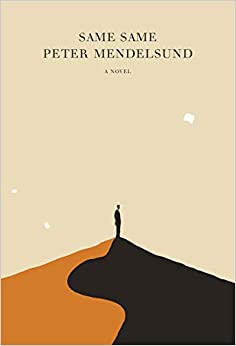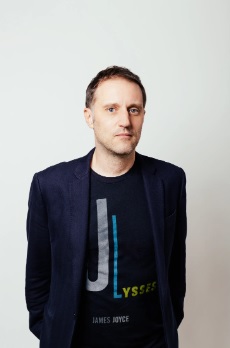內容介紹
大多數書籍致力於模仿生活,本書則成功地模仿了文學。
一部探討真實與虛構、複製與創造的元小說。
故事發生在茫茫沙漠中。在一座不知名的城市附近,有一個研究所,身份迥異的人物——雕塑家、金融家、細密畫畫家、翻譯家,等等——來到此處,穿上整齊劃一的製服,從事各自具有重大意義的項目。
主人公珀西·弗洛比舍也將在這裡完成他的項目。不過,當他被研究所巨型穹頂上的模擬環境包圍時,他的大腦一片空白。項目遲遲未開啟。他還不小心把鋼筆墨水弄到了唯一一件製服上——這是一個重大失誤。
珀西聽說城裡有一處名叫“雙生店”的地方,在那里人們可以把任何想要復制的東西交給神秘的店主,並說一句“仿影雙生”,就會得到一個比原來更好的複製品……讀者將追隨主人公的腳步,進入一個蘊含無限可能的世界。
作者介紹
書評
“Same Same reaches literary heights. . . . Mendelsund’s first novel manages to be breezy and profound in equal measure. That balance is—as the programmers say—a feature and not a bug. . . . In using nonsensical jargon to expose the hollow core of the global Big Ideas industry, Mendelsund has produced—or perhaps reproduced—something entirely satisfying. Same Same is a substantial book about emptiness. It reminds us that there’s no here here unless we create it ourselves. . . . [And it includes] one of the most perfectly tuned passages of fiction I’ve read in a very long time.” —Andrew Ervin, The New York Times Book Review
“A deeply inventive and wonderfully strange novel that takes dead aim at the question: does it matter if something's real?” —Jenny Offill, author of Dept. of Speculation
“[Mendelsund] has a grand time serving up what would seem to be an extended metaphor for creativity . . . that would do Brian Eno proud. Mendelsund's novel of ideas makes a neat bookend to Richard Powers's Galatea 2.2 as a study of creation in the age of the smart machine.” —Kirkus Reviews (starred review)
“Most books aspire to imitate life; this one succeeds in imitating literature. A fractal abyss of copies copying copies, this brilliant and hilarious full-size replica of a novel exposes the limits of conventional narratives by miraculously transmuting repetition into difference and, ultimately, something unique.” —Hernán Diaz, author of In the Distance
“Rewarding. . . . Absurdist, uncanny metafiction about the nature of identity, individuality, and authorship in an era of rapid technological advancement. . . . Comically disturbing.” —Publishers Weekly
“Like an ever-shifting Rubik’s Cube, Mendelsund’s narrative blends influences and genres at will: it begins as an sf dystopia, unfurls like a mystery, and includes some deeply insular sections reminiscent of the late David Markson. . . . Mendelsund has created a dense, complex, and rewarding novel that explores the ever-hazier distinctions between copying and creating, between ourselves and our ubiquitous devices, and between what is real and what is simulated.” —Booklist

